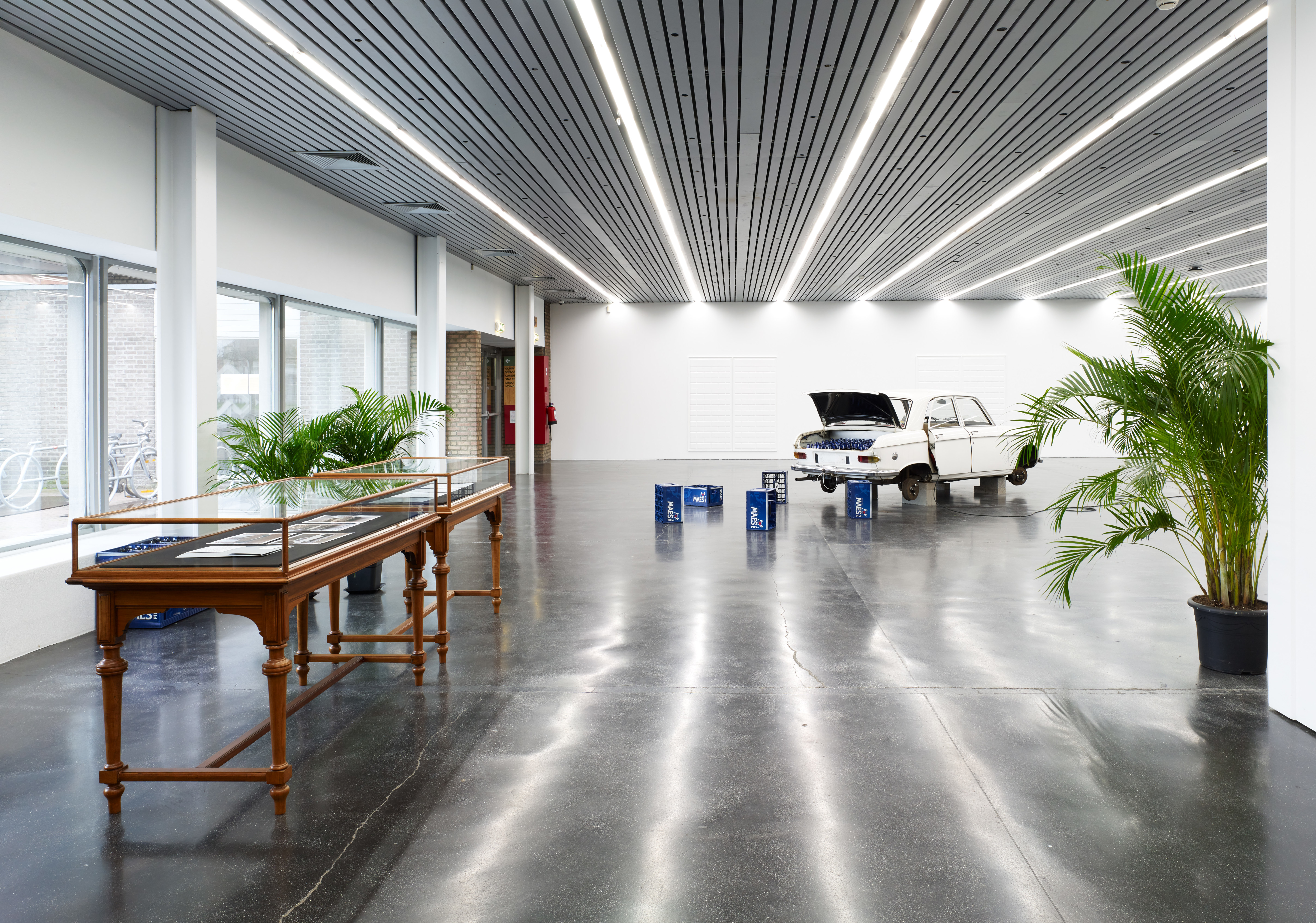
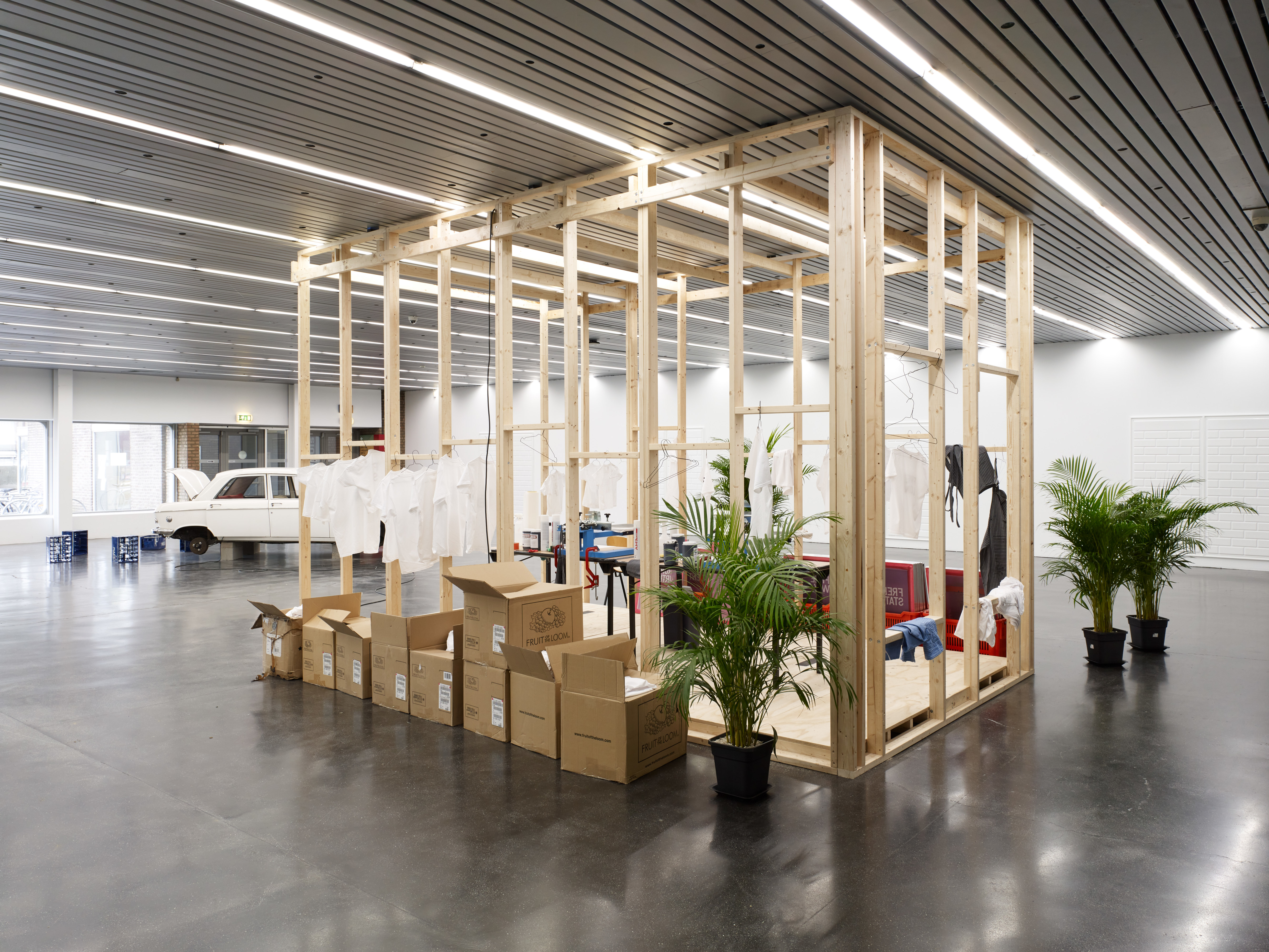
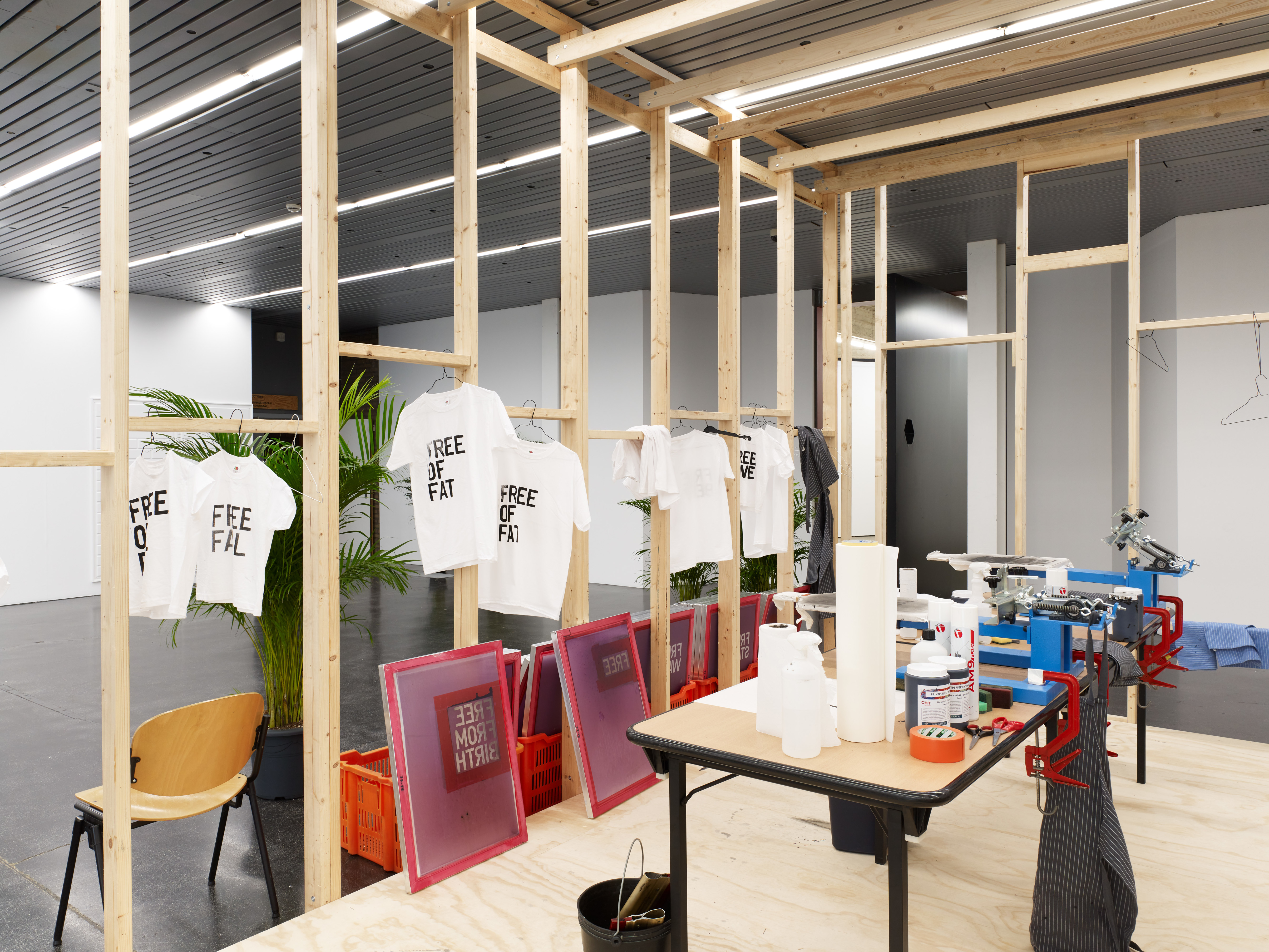
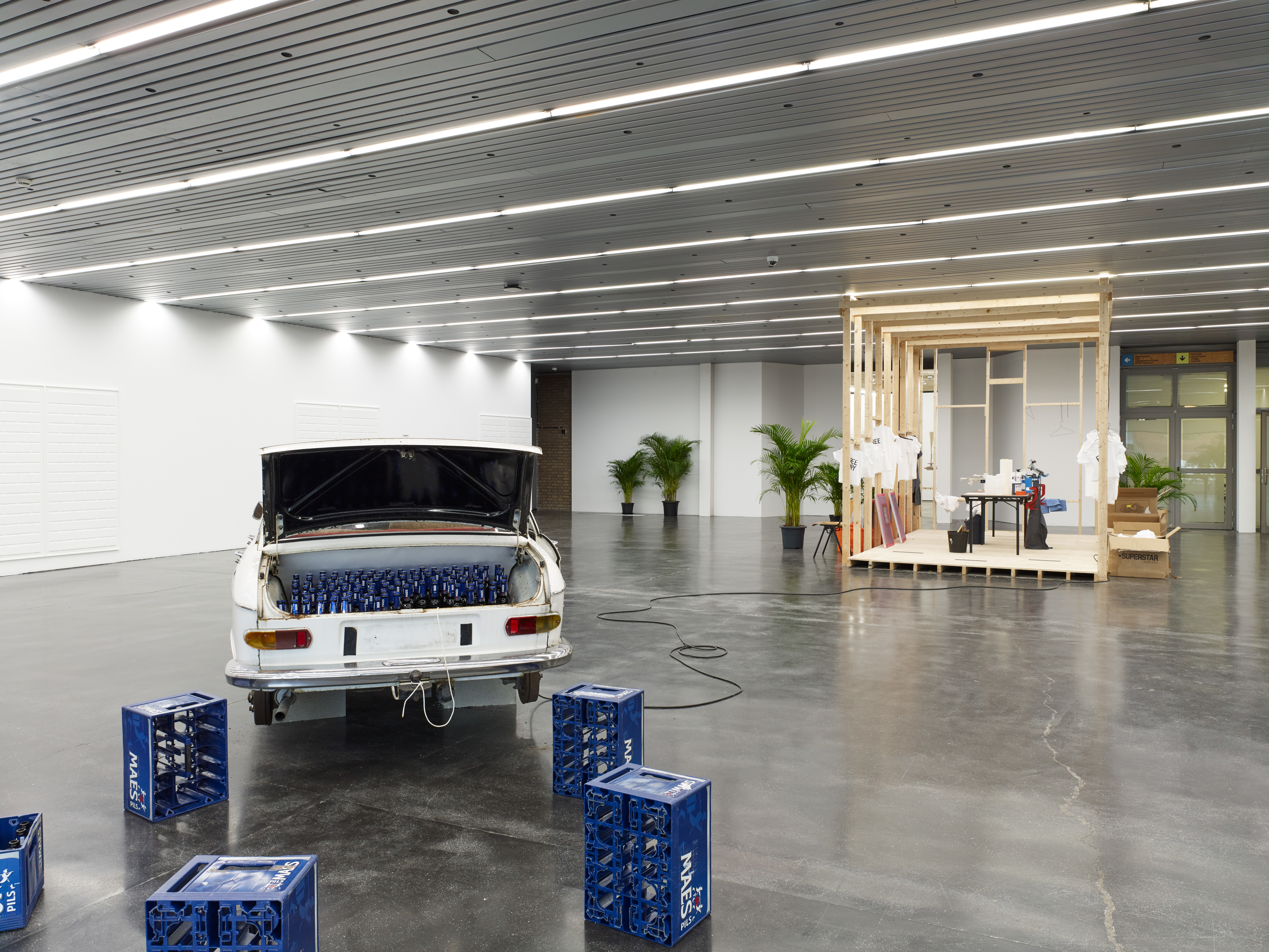
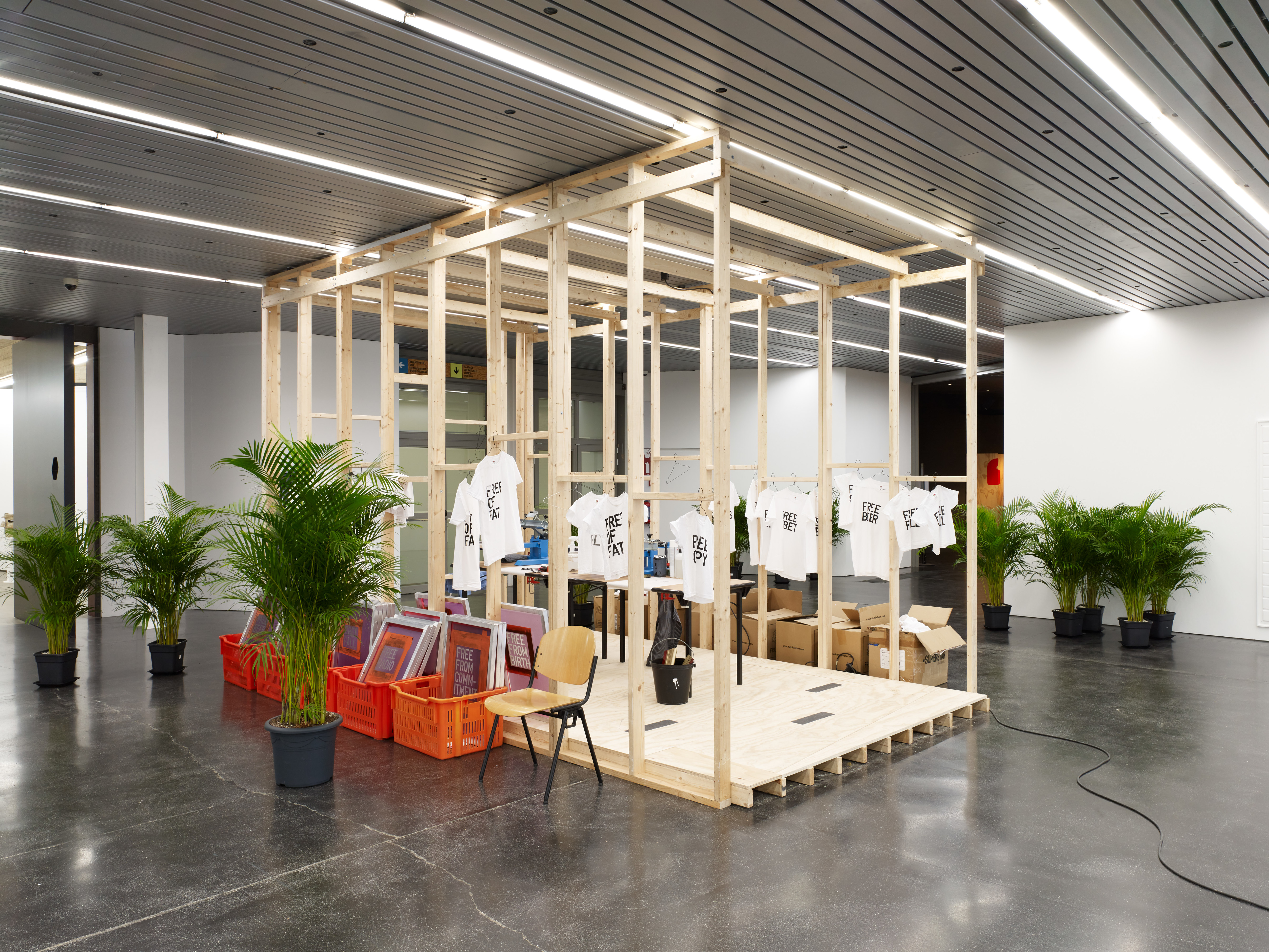
Rirkrit Tiravanija
Overview
For his first institutional solo exhibition in Belgium, Rirkrit Tiravanija returns to the work that sparked his international career in the early 1990s, and puts it in close relation with the oeuvre of Marcel Broodthaers, whose practice has remained one of his primary influences.
For his first institutional solo exhibition in Belgium, Rirkrit Tiravanija returns to the work that sparked his international career in the early 1990s, and puts it in close relation with the oeuvre of Marcel Broodthaers, whose practice has remained one of his primary influences. With a series of newly produced works, Another Sunny Afternoon takes us on a journey into the past of two of the most influential artists of our time and invites the visitors to imagine and discuss which paths we may follow in times to come, beyond the current state of restrictions and withdrawal.
For untitled (free) (1992), Tiravanija famously assembled all moveable items of New York’s 303 Gallery in the exhibition space and installed a makeshift kitchen in the back office, thus turning the art business into a gathering space to meet over lunch. Welcomed as an act of institutional critique, the work was also a subtle critique of cultural appropriation and exoticism, for the visitors could choose between two different kinds of curries: one made from a recipe of Tiravanija’s Thai grandmother and one assimilated to the local conditions, less spicy and with vegetables easily available in downtown Manhattan. While these aspects of untitled (free) (1992) have been widely discussed since, the meaning of the title was all too quickly equaled with “free food for all”, leaving its poetic dimension largely unnoticed.
In Another Sunny Afternoon, instead, the range of potential meanings of the word “free” becomes the central question. Drawing on a list he made at the time of the 1992 exhibition, Tiravanija presents a kaleidoscope of associations, each pointing to different cultural, social, and political situations: a set of enamel plaques puts the original list on display; a print workshop offers T-shirts with slogans such as “FREE BEER”, “FREE PRESS”, or “FREE FROM OPPRESSION” for take-away. The workshop is located in a scale replica of Broodthaers’ La Salle Blanche (1975) which in itself was a replica of the studio at rue de la Pépinière in Brussels where, in 1968, the Belgian artist had inaugurated the first station of his museological critique, the Musée d’Art Moderne, Département des Aigles. Made for a retrospective in Paris, the walls of the plywood structure were covered with words related to visual art, turning the room into a spatial poem. In Tiravanija’s version, the words have been replaced by the slogans from the “free” list.
Accordingly, Broodthaers’ Industrial Poems (1968–1972) resonate in Tiravanija’s plaques and two other works in the exhibition, large-scale panels in black and white resembling brick walls. While in his works Broodthaers took up the aesthetics of advertising and street signs, thus pointing to the random poetry of the modern everyday, Tiravanija, who has been working with slogans since 2003, has repeatedly referred to his textual works as road signs which catch our attention in passing. Unlike in Broodthaers, whose panels usually included words and icons, Tiravanija significantly leaves the surfaces of his brick walls empty – symbolically leaving space for future inscriptions and the thoughts that visitors may come up with during their stay at CC Strombeek.
The only older work in the show is untitled 2018 (the icebox 204), a fully functional old Peugeot 204 equipped with an icebox in the trunk filled with beverages. During the show the car will be taken to the Meise Botanical Garden, inviting everybody to gather on what hopefully will be Another Sunny Afternoon.
